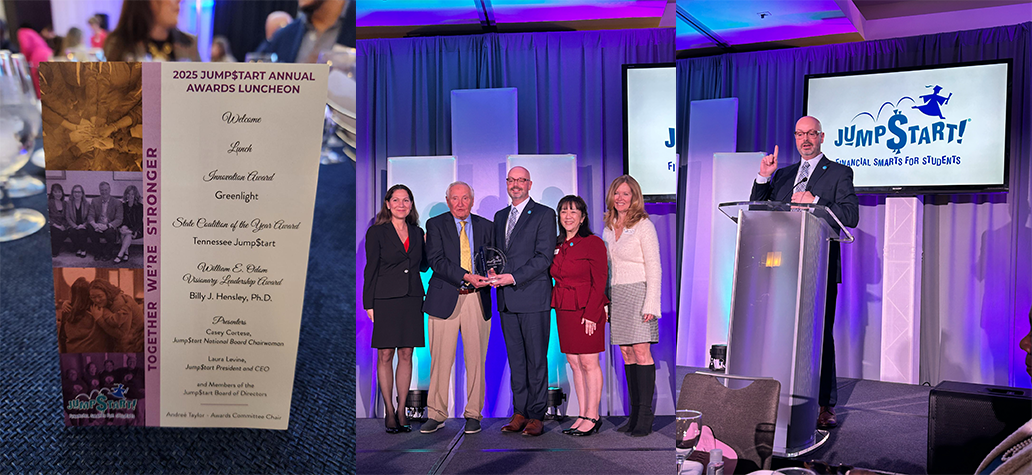Financial Educators and Counselors Could Be “The Vaccine” Many Need to Recover Financially
For the second year in a row, we have observed National Financial Literacy Month during the global pandemic—an era in which our physical, mental, societal and financial vulnerabilities have been greatly exposed. While we are buoyed by optimism for a return to a previous routine, we are more cognizant of steps we need to take to ensure our overall well-being. Through the race to deploy vaccines, Americans are cautiously considering the best way to preserve their physical health. Health preservation is key, but these shots also are providing peace of mind and a surge of assurance. But what about a means to protect and enhance our financial health? While financial education cannot offer protection against every economic challenge, it does provide basic defenses: it increases knowledge and offers a much-needed boost in confidence. Financial education will fundamentally contribute to our economic recovery, and for many may assist in managing the factors of economic fragility such as rising debt and income disruptions. This crisis also has highlighted the need for financial educators and counselors to integrate more programming that covers insecurities with housing, food and technology—areas that were highly vulnerable during the pandemic.
The Unfortunate Reality: The Income Inequality Gap
The vastness of the income inequality chasm has been brought to light during the pandemic. Some on one end of the income spectrum have used their time and money to remodel homes, upgrade landscaping and purchase new cars or workout equipment. Others have teetered on the financial edge. Recent data from the National Endowment for Financial Education (NEFE) discovered that nearly seven in 10 U.S. adults (68 percent) experienced unexpected financial setbacks in 2020. Job loss and the inability to keep up with debt and falling behind on bill payments were the top obstacles. But people of color have been disproportionally affected. Nearly eight in 10 (78 percent) of Hispanic Americans, and 76 percent of Black/non-Hispanic Americans, experienced unexpected major expenses or financial setbacks in 2020—both at higher rates than those of white/non-Hispanic Americans (63 percent). Hispanic Americans (37 percent) and Black/non-Hispanic Americans (29 percent) also were more likely than white/non-Hispanic Americans (21 percent) to have experienced job loss in 2020.
Furthermore, during what has been dubbed a “Shecession,” we have witnessed women experiencing greater financial challenges than their male counterparts. Women (28 percent) are significantly more likely than men (20 percent) to say they experienced an inability to keep up with debt and were falling behind on bill payments. Women (38 percent) also are significantly more likely than men (26 percent) to say the current quality of their financial life is worse than they expected. Additionally, men (45 percent) are significantly more likely than women (37 percent) to say they are not living paycheck to paycheck.
Systems Change Through Collaboration will Ensure that Financial Education is Effective, which will help Relieve Financial Fragility
Stimulus payments and tax refunds can help establish a safety net to lessen economic blows that can happen to any of us. But there is no singular solution to solving the problem of financial fragility. We remain focused on maximizing education’s potential but must rely on those in adjacent fields—those who improve consumer protections, provide financial coaching and counseling, and regulate financial products—to do the same. If we have learned anything since last March, it is that nothing less than systems change is necessary to strengthen the financial well-being of individuals and families. And this change cannot happen without collaboration among all stakeholders and partners within our field to ensure that financial education is as effective, and accessible, as possible.
When NEFE started Youth Financial Literacy Day nearly three decades ago, a unified movement was envisioned. Now the extensive community of professionals operating within the personal finance ecosystem has embraced the core tenets of Financial Literacy Month. It is significant progress to have gone from a sole focus on educational solutions to a full consideration of all known factors that influence financial well-being. With greater scrutiny on practice and data, and a broadening understanding of what it takes to increase financial well-being, we are hopeful that systemic barriers are being surfaced and removed. After all, personal finance education will never permit an individual’s foray toward pecuniary liberty without first removing the obstructions of self-determination and full economic participation.
During the last decade, in particular, our field has made great strides in both practice and research. We’ve identified key factors of effective and meaningful financial education delivery, improved research quality to better understand links between financial education and wellness, and created a framework that illustrates the multiple influencers that impact financial well-being. Yet, even if one is proficient in all personal finance topics and adheres to quality decisions and products, consumers still will not achieve their best financial lives if they do not have access to quality jobs and equal pay, face obstacles to financial participation, and remain restricted by discrimination and bias.
That is why beyond Financial Literacy Month I am placing a greater call for unity within our field.
- All who seek to improve the financial health and economic mobility of individuals and families must work together to better understand financial fragility and collectively work toward effective solutions.
- We also must continue to explore what works in legislation and develop models to reach diverse audiences with appropriate approaches.
- We must be transparent and honest about where are we missing the mark, particularly in meeting the needs of under resourced populations.
- Leaders throughout the financial education community must come together and work toward common goals. I am certain that we can coalesce around best practices, build meaningful and lasting interventions, and evaluate our impact, which includes recognition of our success but also awareness of the continuous methods for improvement.
We have come a long way over the past three decades, but there still is much to do. A true spirit of collaboration within the financial education community is necessary to unlock the doors to improved financial well-being for all Americans. Anything less than fully embracing our synergy is a disservice to those we all aim to serve. We are stronger together than as one.
Billy J. Hensley, Ph.D., is president and CEO of the National Endowment for Financial Education (NEFE), a nonprofit foundation that champions effective financial education. NEFE is the independent, centralizing voice providing leadership, research and collaboration to advance financial well-being.


